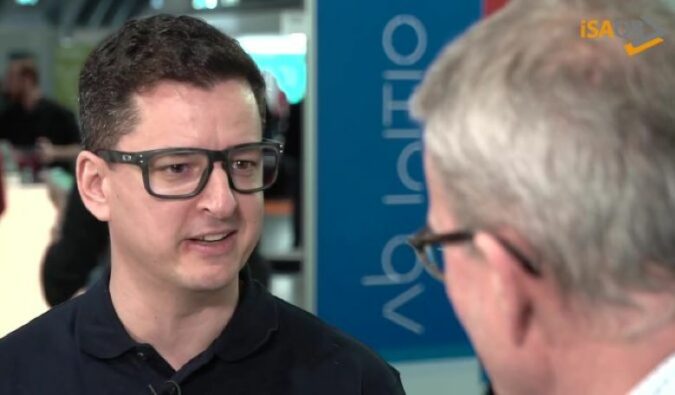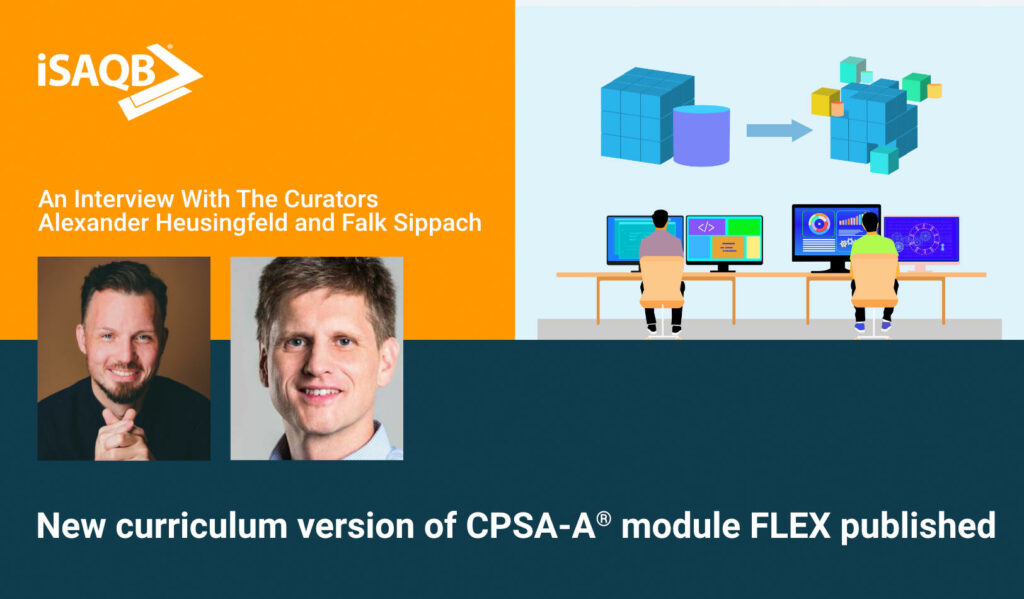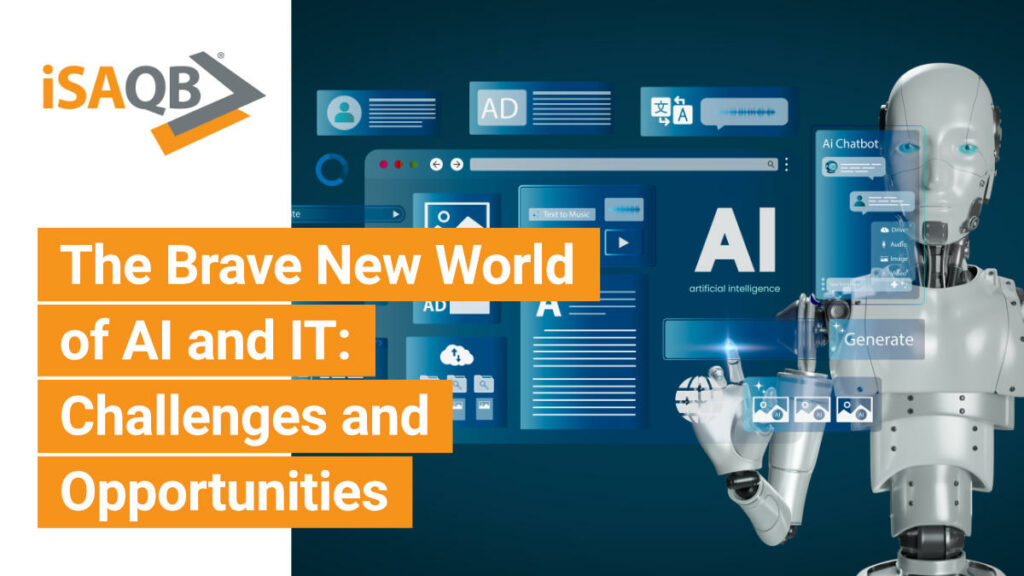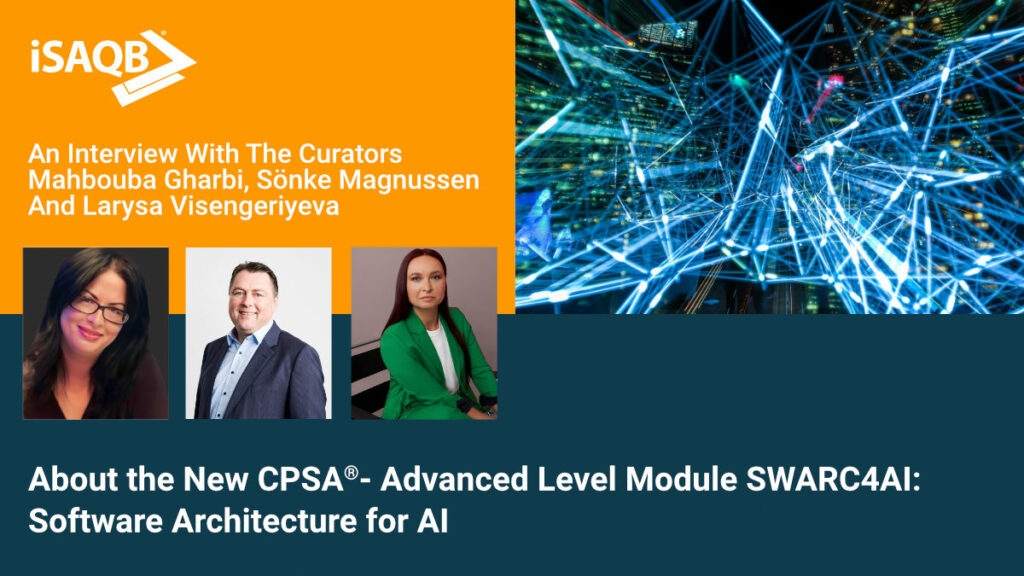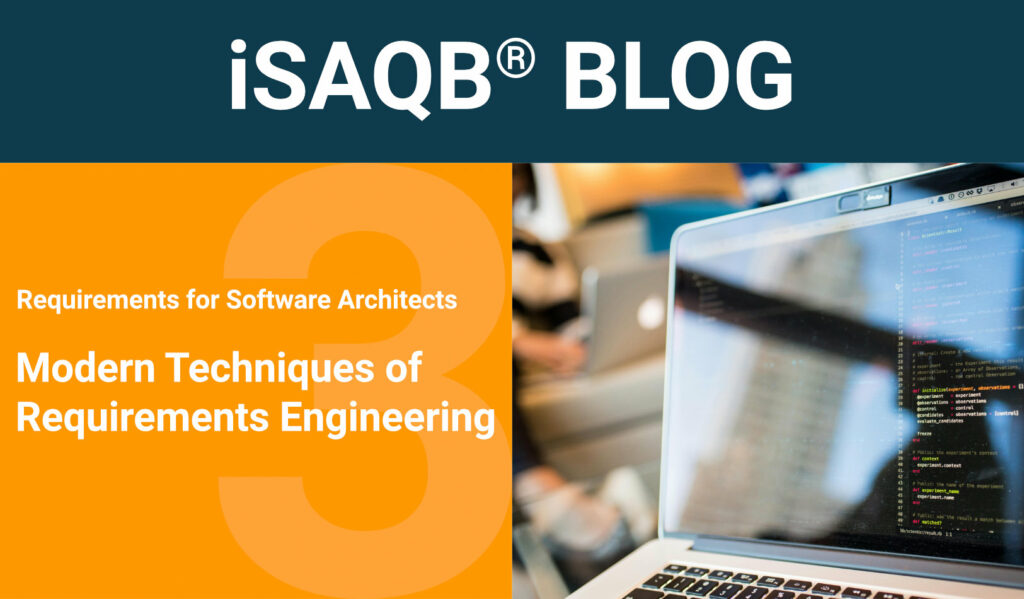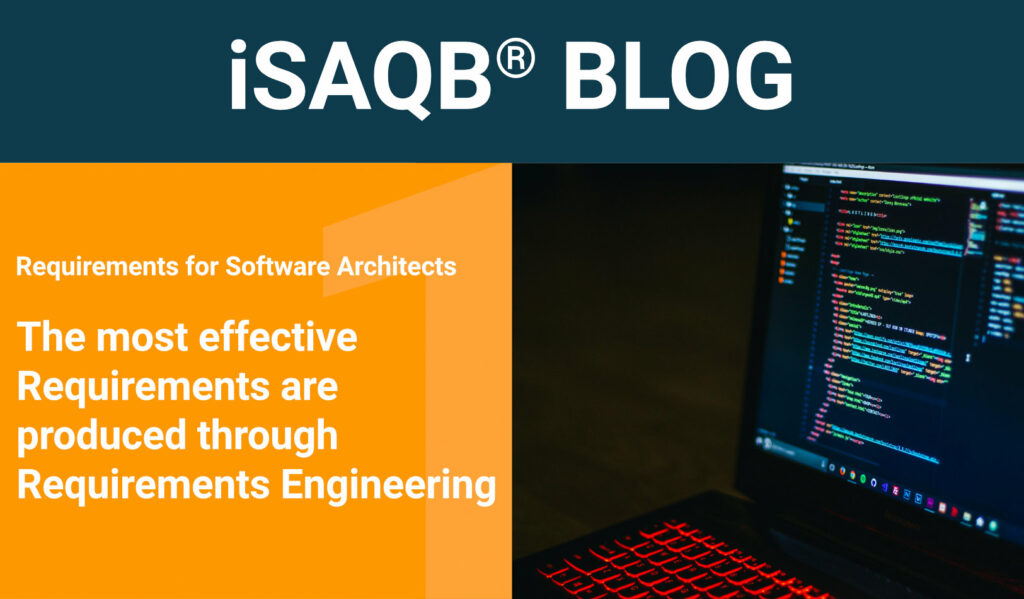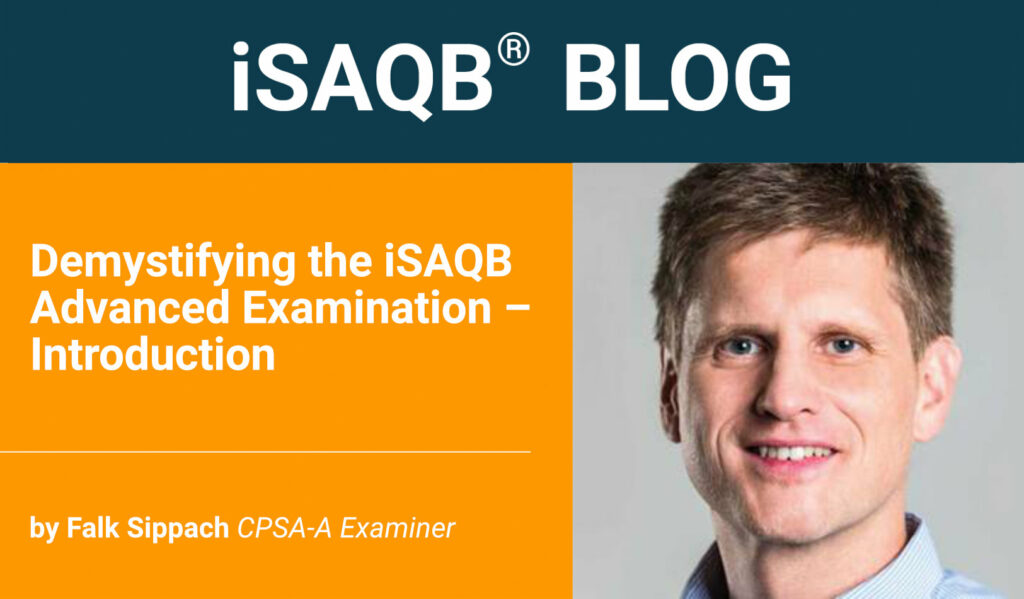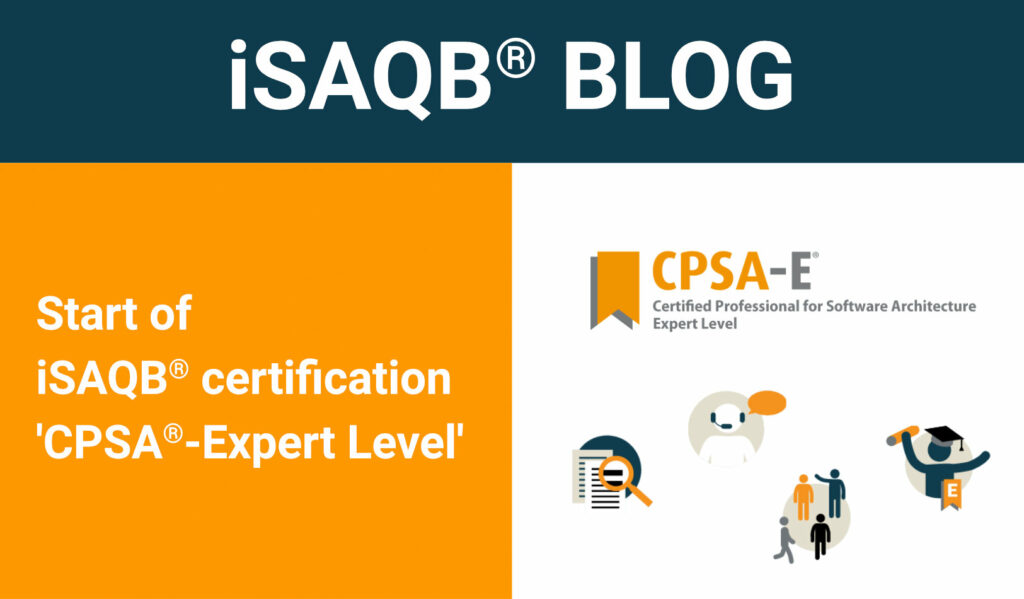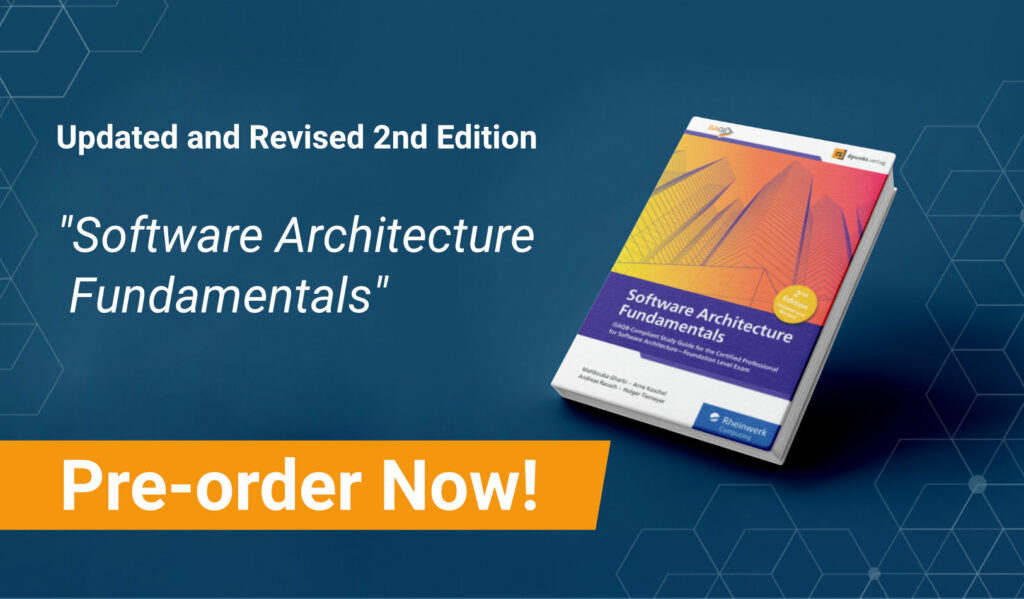Community Work at the iSAQB
Interview with iSAQB member Alexander Simon at the OOP conference 2020 in Munich
Christoph Witte: Hello, my name is Christoph Witte, I’m a freelance journalist, and we are here in front of the booth of the International Software Architecture Qualification Board at the OOP conference in Munich. Today I’d like to talk with Alexander Simon. He’s an IT consultant and owner of the company emax-it. And he’s an active member of the iSAQB. Alexander, why are you with the iSAQB?
Alexander Simon: Years ago, when I was in software development, I faced a few problems concerning the quality of software products. What happens with the software if the connection to the database is lost? How do we ensure the performance and stability of software? I faced these problems not only in a few projects – all of these projects had the same problems. And I was thinking that I couldn’t be the only one who solved this. In the iSAQB I found other members and sympathizers with the same problems. So, we came together, and it’s a great community to work with.
Christoph Witte: Okay, so the community aspect is the aspect you like most about the iSAQB?
Alexander Simon: Yes, there are a lot of experts, and we exchange our knowledge, and our experience, and that’s great.
Christoph Witte: And what tasks do you do for the iSAQB?
Alexander Simon: As an active member I work in the community working group, and in that community working group we try to build up a community of active experts and bring exchange to a broad field. That means a lot of people out there have the same problems, and we bring people together in a casual way after work to exchange their knowledge and experience, and to answer their questions in a community environment. And that’s the main idea.
Christoph Witte: Okay, and do you do courses as well, or is it mainly the community work?
Alexander Simon: You mean, in the community in particular? Well, we prepare topics, so it’s not like we are sitting together without a topic. We give people a structure and suggest topics to be discussed. For example: How do you feel about microservices? What is your experience? What are the problems or solutions for this topic? It is a structured get-together.
Christoph Witte: So, the discussions have a purpose. And they are structured as well. Okay. And what do you consider the most challenging? What are the biggest challenges for companies in the architecture field?
Alexander Simon: The biggest challenge is actually my environment. We have a lot of legacy applications, and these legacy applications should be transformed into a new technology, so you have multiple possibilities. One possibility is to write them anew, which means a huge effort for all the IT experts and the development process. And the second way is to transform them, and the transformation of these software products to new platforms, to new environments where they run, is the first big challenge that people face. And the second thing is the optimization of existing applications. We’re developing software, and we have stress, we have budget gaps, and we have to fulfill everything. So sometimes we create solutions which are not the best fit. We are led into technical debt. And the problem that we are facing the most is not to be stuck in this technical debt, and to come out of this. And this is the optimization of existing applications, the continuous improvement of these applications.
Christoph Witte: Okay, that’s the second challenge. Is there a third or are those two the main challenges?
Alexander Simon: Well, if you want to offer good quality, then these are the most common problems you have to deal with.
Christoph Witte: How do those challenges transfer or translate into the work of the iSAQB?
Alexander Simon: We try and already touch on these topics in Foundation Level courses, and we have several topics at Advanced Level, like FLEX or IMPROVE or ARCEVAL, where these special topics are addressed.
Christoph Witte: So, there is a continuous flow from the community part of the iSAQB to the official course materials.
Alexander Simon: We try to be on the pulse of the time and to address actual problems.
Christoph Witte: Thank you very much, Alexander.
And thank you for your time and interest. And please remember the challenges companies do face now with transforming their legacy systems into digital processes and digital systems. Thank you very much.
Alexander Simon: Thank you.
Watch the full interview here:
Share this article:
Related Posts
About the Author
Featured in this article


